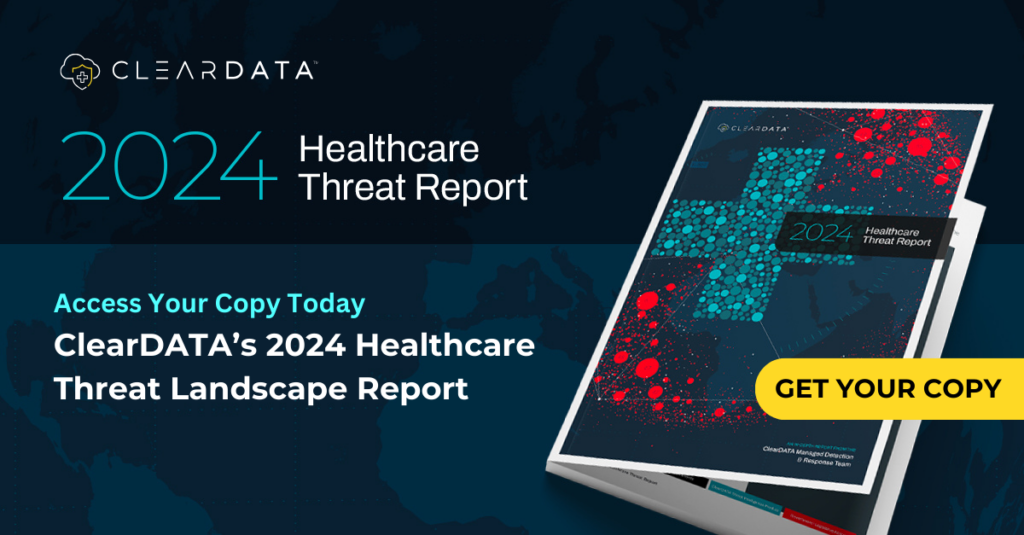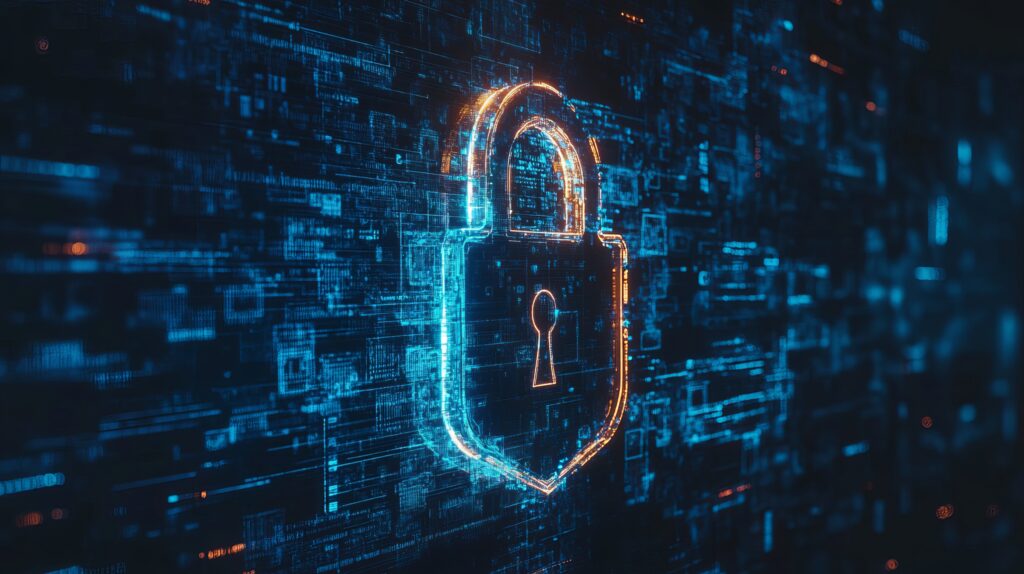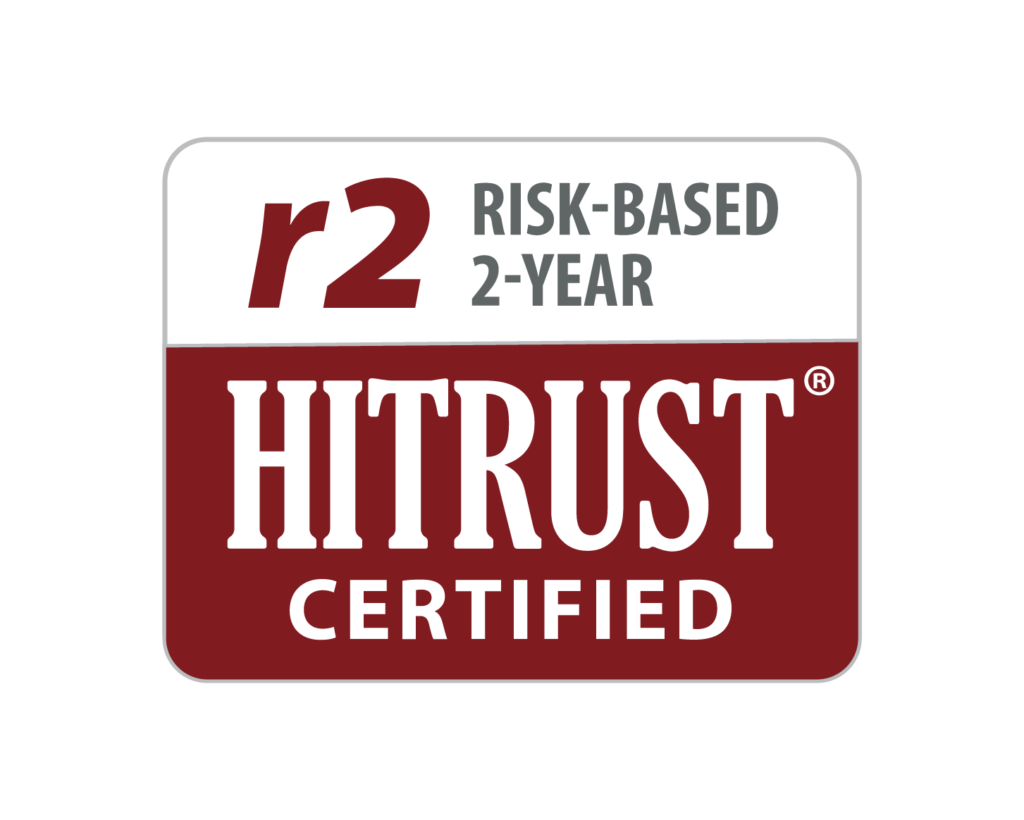Chris Bowen of ClearDATA: “I want to solve the breach crisis; I want to stop the thieves and bad guys that ruin peoples’ finances, wreak havoc on their lives”
Originally published July 2019 by Yitzi Weiner at Authority Magazine
“I want to solve the breach crisis. I want to stop the thieves and bad guys that ruin peoples’ finances, wreak havoc on their lives and compromise their health. Privacy is a passion of mine, and I want to stop these outside forces from stealing what is rightfully yours. If we can do this we’ll be in a position to really use data in a meaningful way that can extend and improve the quality of life for so many.”
I had the pleasure of interviewing Chris Bowen, ClearDATA’s Chief Privacy & Security Officer and Founder. As Chief Privacy & Security Officer at ClearDATA, Chris leads ClearDATA’s privacy, security, compliance, and risk strategies as well as advises on the challenges faced by customers. This includes healthcare payers, providers, life science companies, and healthcare IT from the Asia Pacific, North America, and Europe. Chris also leads ClearDATA’s global security risk consulting practice.
Thank you so much for joining us Chris. Can you tell a story about what brought you to this specific career path?
There’s an interesting journey that connected my early career in politics with where I am now. I had been working for the U.S. House of Representatives but was lured away when The Donor Network of Arizona asked me to help them rewrite the state’s donor legislation to make it easier to become an organ donor. I didn’t realize it at the time but this was a turning point in my career. I was able to write legislation that facilitated the donation of organs to save lives. My exposure to that was poignant by being able to see the tragic end to life juxtaposed with new hope given to a person who could not survive without a life-giving organ in the same 24-hour period which had a lasting impact on me. I was eventually asked to join the Arizona House Majority leadership as a key aid to the Speaker, where I continued to be involved with healthcare reform and internet privacy. I crafted and passed legislation for both healthcare and privacy in the same timeframe as I was pursuing my graduate studies combining two passion points of mine — technology and privacy. Once I finished my MBA, I decided to leave politics to start my own company focused on delivering complex web-based applications: DirectClarity.
At DirectClarity, one of my customers was the fifth-largest hospital provider in the country. They really pushed me to make sure I quickly learned how to protect patient privacy. Whenever we wanted to deploy an app that even theoretically processed protected health information (PHI), there was a deluge of questions from HIPAA attorneys and privacy officials rightfully wanting to know how my company would protect that PHI. I became an expert at understanding privacy laws and regulations in order to make my business work. After several years of this, I realized there was no company solely dedicated to creating environments specifically to protect patient data. They were all generalists that didn’t fully understand the nuances of healthcare delivery. That was the seed of what became ClearDATA. With this idea, I approached a trusted lawyer at the hospital system and ran my idea by him about starting the company. His emphatic encouragement inspired me to create a company specifically designed to protect patient data (through privacy, security, and compliance using the cloud) so that healthcare could continue to innovate and use these apps that improve quality and quantity of life for patients.
Can you share the most interesting story that happened to you since you began leading your company?
Honestly, in this work, every day produces an interesting story. In the early days, I would travel a lot to do HIPAA security risk assessments. On one particular trip, I ended up traversing South Dakota to assess several critical access hospitals. I had seen a lot of strange things in the basements of large hospitals but it was on this trip that I decided to someday write a book titled “You Can’t Make This Stuff Up!” Passwords were stored under mouse pads, medical records were stored unsecured in sheds by lawn mowers, and we even discovered a functioning server that had been enclosed in drywall by a construction crew. One of my favorites was watching a doctor get out his magnifying glass to show us the password he had written on the wall that would provide access to the MRI results. “Security by obscurity!,” he proclaimed.
On the more productive side, I have the privilege of getting to work with the most imaginative and innovative people in the world to make healthcare better every single day. I get to see the ways emerging technologies can truly transform healthcare and save lives with the right privacy, security, and compliance solutions. Looking at advances in artificial intelligence and machine learning, for example, are fascinating as a way to give healthcare organizations visibility into where PHI lives and flows across numerous microsystems with our Healthcare Aware Distributed Tracing solution… coming a long way from storing records in sheds.
Can you a story about the funniest mistake you made when you were first starting?
Well, this is a more serious note for me. Because the nature of the work we do to protect patient data can affect healthcare outcomes, mistakes just aren’t funny, and we work diligently to exercise extreme caution. We are a startup though, and we’ve learned to fail fast and move forward. Admittedly we, like any other startup, have bumps in the road as we grow. But our company is founded on the principle of working to protect organizations from risk and mistakes using security automation in the cloud. We stay awake at night working to be sure we get this just right.
Can you describe how your work is making a significant social impact?
By some estimates, more than a quarter million people a year in the U.S. die of medical misdiagnosis. This is largely due to siloed data and antiquated information systems that fail to provide healthcare professionals with the view of the whole person. In some cases, technical barriers like these prevent patients from getting the care and medicine they need until a complicated process of correcting or locating missing or stolen records is resolved. In the darkest of actions, not only is malware and ransomware hitting healthcare at a higher rate than ever, now medical devices (pacemakers, kidney dialysis, etc.) are being hacked or held ransom. This must stop.
Our company works to make healthcare better every single day by providing the highest possible level of privacy, security, and compliance under the most stringent guidelines including our HITRUST certified practices and policies, and our adherence to complicated regulatory frameworks. We protect people, and specifically, we protect people who need access to accurate, timely, and effective healthcare.
Can you tell me a story about a particular individual who was impacted this cause?
The mission of improving healthcare is personal for each of us. We all have a story of a loved one we’ve lost. Earlier this year, our company said goodbye to a dear teammate Javad Kabiri. He was a wonderfully warm person, smart and optimistic. He cared so much about this mission. Our healthcare system wasn’t able to save him, but with the work we are doing we are hopeful that we can help healthcare organizations advance research, solutions and treatments to help people like Javad in the future.
As far as the security side of the equation, in the first half of this year alone there were 49 healthcare data breaches reported, compromising the records of nearly 730,000 Americans — all of these people could be impacted by our mission and have been touched by the healthcare delivery system. One of my own colleagues was recently diagnosed with a severe illness where it took a long time for the doctors to diagnose the problem accurately. In spite of his laptop being stolen right out of his hospital room, he received pretty good care from his healthcare team. But to date, there is no real cure for what he has. Our mission is to make healthcare better. We strive to enable providers, payers, life science companies, and healthcare solution companies innovate using cloud services that glean insights from petabytes of data that could never be processed or analyzed in the traditional sense. Some of our customers map the genome, some create data lakes, and some take both and come up with solutions. These solutions are so precise to an individual, we have hope that the incurable diseases of today can be eradicated at the individual level tomorrow. I’m energized each day at the prospect of enabling the healthcare system to leverage new approaches in data to solve healthcare problems. We have a very purposeful role in empowering innovation at scale.
Can you share with us a story about someone who has inspired you to do the work that you do?
Like any good son, I have to give credit to my mother for instilling in me a relentless work ethic. She used to tell me that I could do anything I put my mind to. That never really sank in until I won a Congressional campaign that I managed at 24 years old.
Beyond that, I’ve been fortunate to have many mentors and influencers in my life, but the person who comes to mind first is Brandon Ingersoll. He was my old college roommate. We came from two very different worlds when we began rooming together. He was from the East Coast, had an affluent upbringing, with a total sense of belonging at the University. I was a first-generation student and worked my way through college doubting every moment of that first year whether I could make it. I literally dug ditches during the summer to pay for school. I was covered in sweat and dirt, fixing the irrigation pipes on the golf courses where kids like Brandon might play golf. Brandon treated me like a total equal, and it inspired and surprised me. In our first semester, he got a 4.0 GPA, and I thought, well I if I work hard like him maybe I can get a 4.0. So, I did. And I continued following Brandon’s example of claiming a seat at the table. This led me to meeting a guy named Mike Levitt — an insurance guy — who was taking a run at becoming governor. I thought, “Hey, maybe I should volunteer.” So, I did and he won. He eventually became the Secretary of Health and Human Services. He was down to earth, kind and humble as he was changing the world in his own way.
All of this led me to eventually landing a gig running a congressional campaign for a man trying to be elected in the 104th Congress. I never believed I couldn’t do this kind of work, so I put my heart into it. We won a 5-way primary, and a tough general election. I became one of only 74 campaign managers in America to win a seat that helped the change control of Congress in 1994. I began attending a variety of political events as a congressional staffer and met the names of the day from Sonny Bono to Steve Largent to Newt Gingrich. That was a big deal for a kid with humble beginnings. I realized however, that they were all just people like me who reached for their dreams. So, I dug in and became the first in my family to earn a college degree (two actually) and to this day, I tip my hat to Brandon for showing me I had a right to be there. I earned my place at the table then, and I continue to work hard to keep it every day.
Are there three things the community/society/politicians can do help you address the root of the problem you are trying to solve?
Yes!
Society: demand your rights to privacy. It’s your data. Don’t settle for lax privacy laws or inadequate privacy practices. Politically, we’ve struggled to pass comprehensive privacy legislation — we should. I’m all about states’ rights, but the patchwork of privacy laws across America makes it very difficult for people to know their rights.
Politicians: Get smart about technology and privacy. Some of the Facebook hearings in the last year were frankly embarrassing — and not for Facebook, unfortunately. Learn how technology and the cloud works, understand what it is, help drive innovation while preserving an individual’s right to privacy.
How do you define leadership?
Back to my mom. My mother made me earn my Eagle Scout before I could get my driver’s license. I’m grateful now for her leadership (and deal-making) in that decision. Scouting taught me a lot about leadership, and more specifically, servant leadership. Beyond the motto of “be prepared,” scouting embedded in me a sense of “if not you, then who?” This ironically came to bear in very real terms when at 16 I careened over a bridge in a car my sister was driving into an icy river that sunk to the bottom. After freeing myself, I knew if I waited for help, she would be dead. I dove in to save her. It took me coming up for air and going back in three times to get her out, but I persisted, and she lived. We all have to own the leader in every moment. We can’t wait for someone to come ‘save the day’ — we all lead. I see leadership as not merely doing for others but empowering others to lead. Real leadership has grit, boldness, passion, humility, and servant motivation. Between my mom, my wife, my mentors, and so many influencers, there’s been a lot of great examples to learn from, and I keep learning every day. Leadership is a process that starts every morning. I work with an amazing team to form an organization that honors that in each person on each team, inspiring them to own their sense of responsibility to lead.
What are 5 things you wish you knew before you got to the point of starting your own business.
- Wake up early to take care of yourself. You’ll need to be healthy and centered because it takes a lot more work than you think to start a company.
- Good strategy evolves. You can come up with a vision, but you must surround yourself with talented, good people to figure out your strategy together.
- Never doubt that you can’t do anything that you set your mind to doing.
- You belong at the table.
- Keep some balance in your life, so you don’t miss your youth or joy on a regular basis. I was advising politicians while my peers were playing. Work hard but enjoy your youth because you don’t get to live that part over.
- Be very careful about with whom you partner professionally or personally. Be especially cautious about with whom you go into business. Choose only those that reflect your values and ethics and integrity. That’s what we’ve worked to accomplish since the beginning of ClearDATA.
You are a person of enormous influence. If you could inspire a movement what would it be?
I have talked to my talented coworkers Matt Ferrari, Scott Whyte, and Darin Brannan about this quite a lot actually. We all have big missions we’re working toward that are actual, not just aspirational. I want to solve the breach crisis. I want to stop the thieves and bad guys that ruin peoples’ finances, wreak havoc on their lives and compromise their health. Privacy is a passion of mine, and I want to stop these outside forces from stealing what is rightfully yours. If we can do this we’ll be in a position to really use data in a meaningful way that can extend and improve the quality of life for so many.
Can you please give me your favorite life lesson quote?
“Success is not final, failure is not fatal: it is the courage to continue that counts. If you’re going through hell, keep going. Never, never, never give up.” — Winston Churchill
Is there a person in the world, or in the US whom you would love to have a private breakfast or lunch with?
If they could be from any time period, I would choose Winston Churchill. But for today, I’d love to share some time with Richard Branson. He’s an inspiration with how he marries leadership, innovation, and passion along with his ability to care deeply for those around him and fight for their success and health and live an abundant, healthy, happy life.
How can our readers find you on social media?
LinkedIn: https://www.linkedin.com/in/cbowen1/


